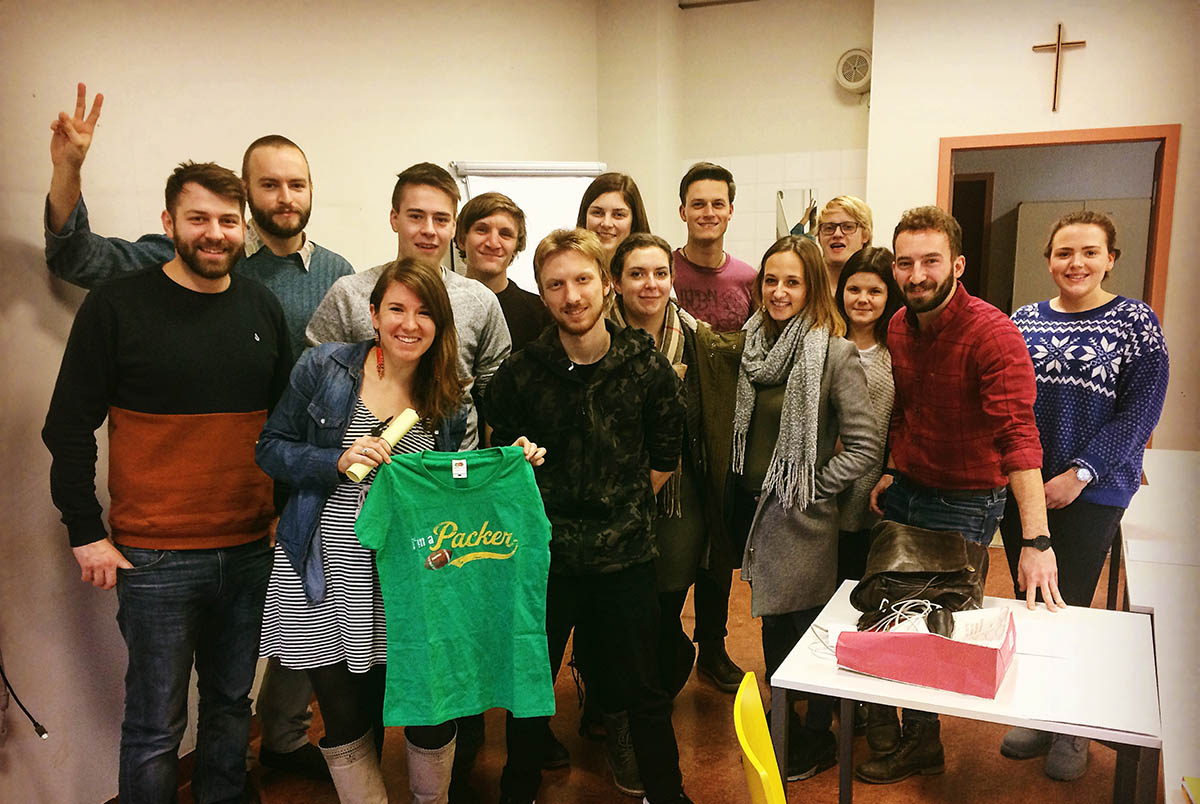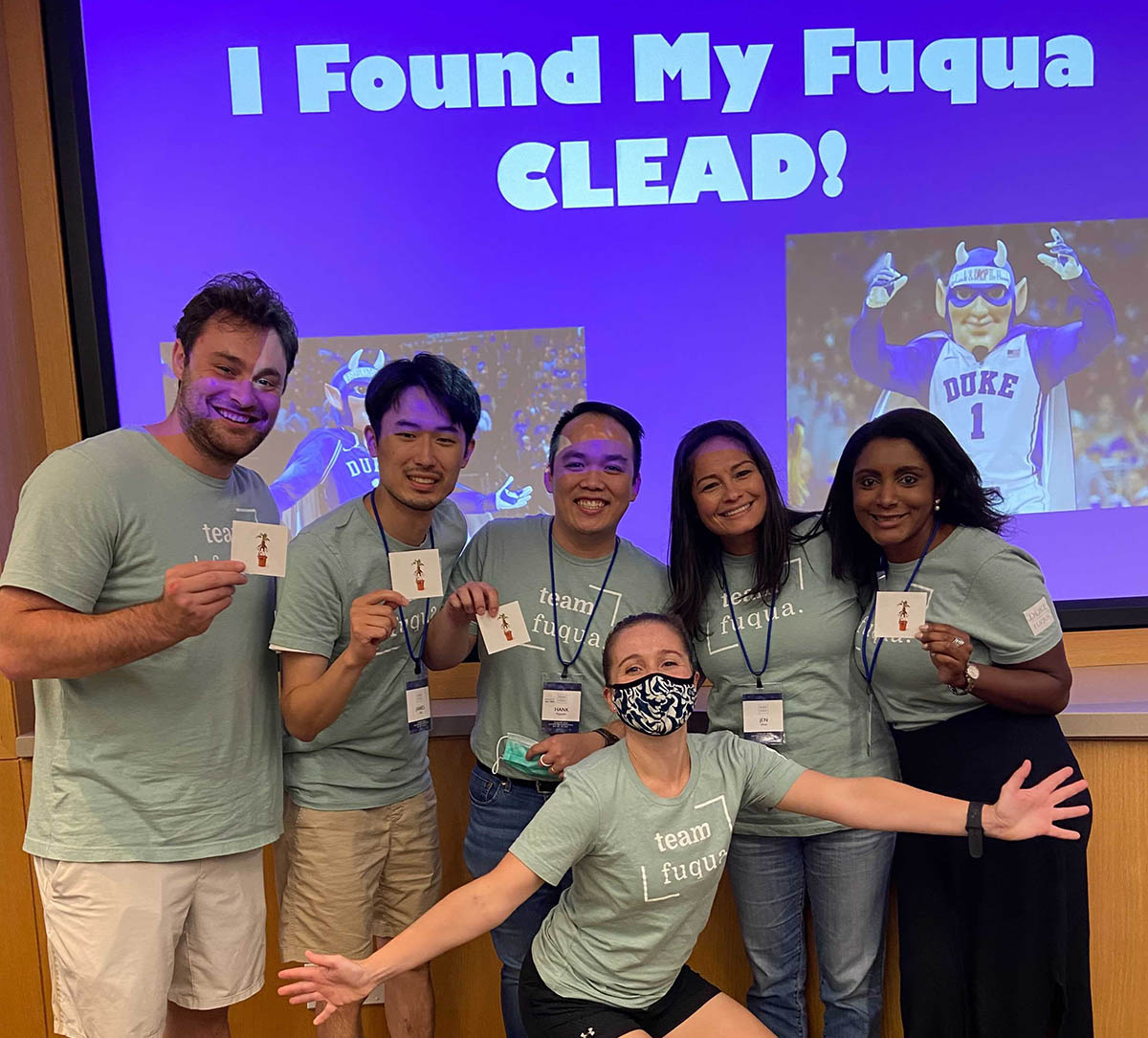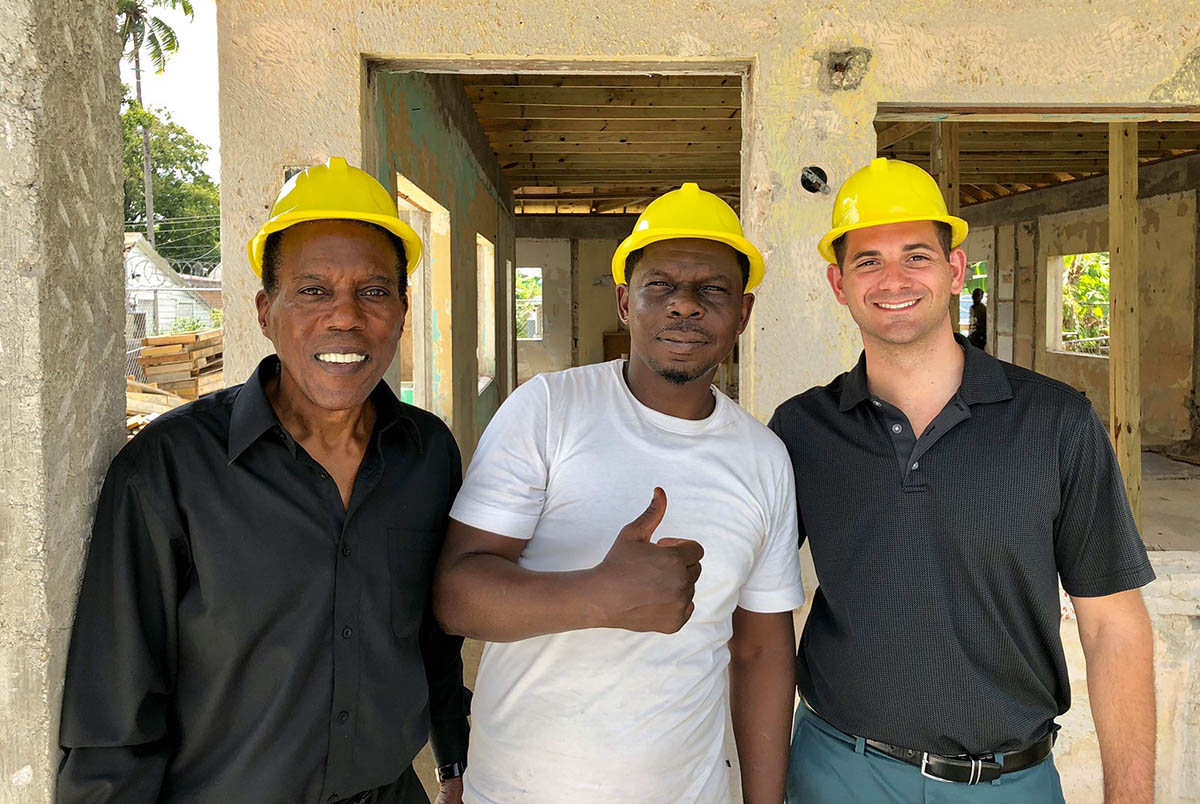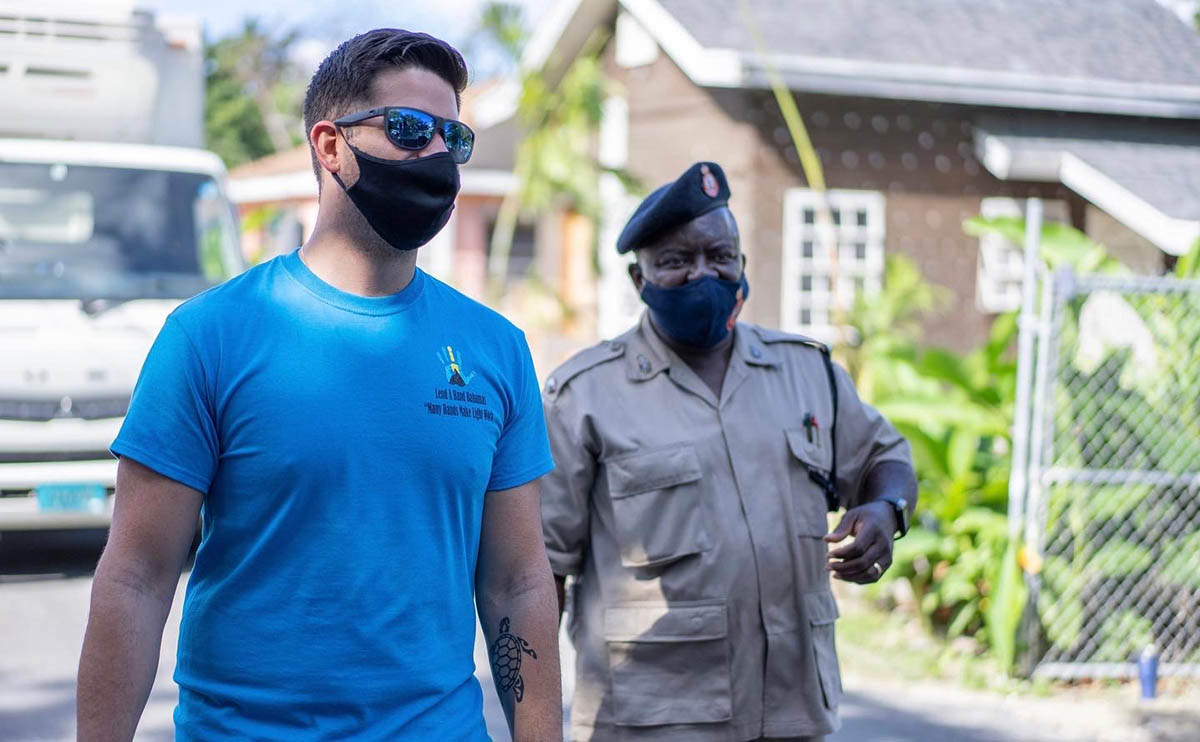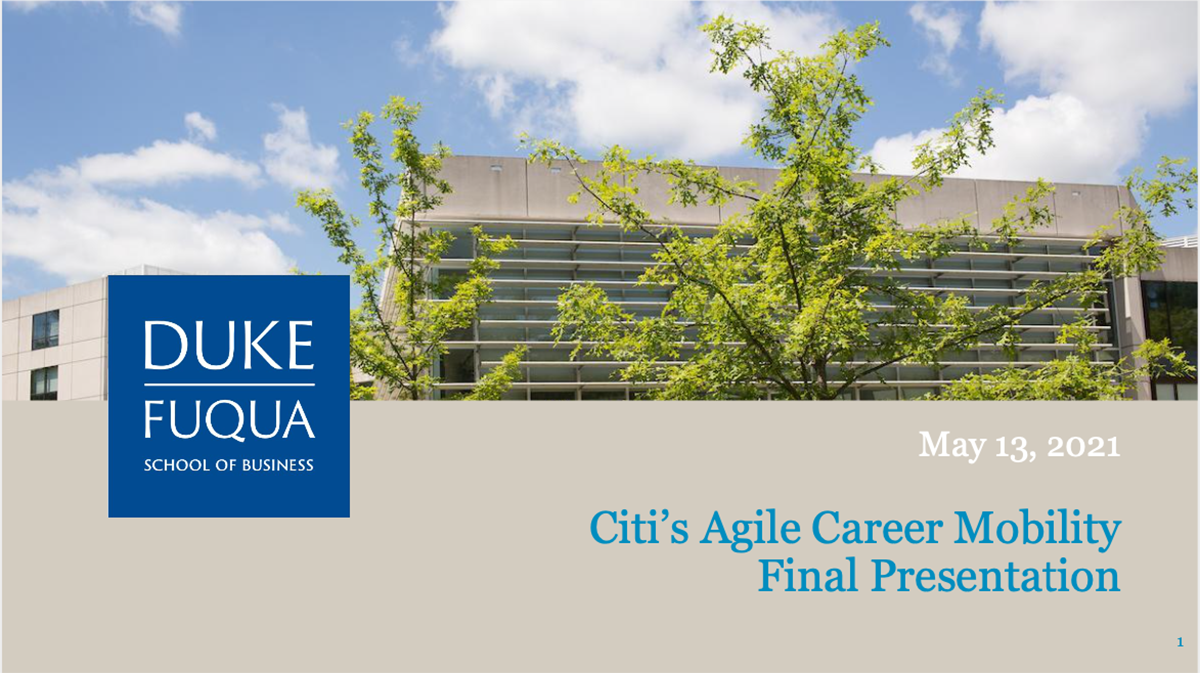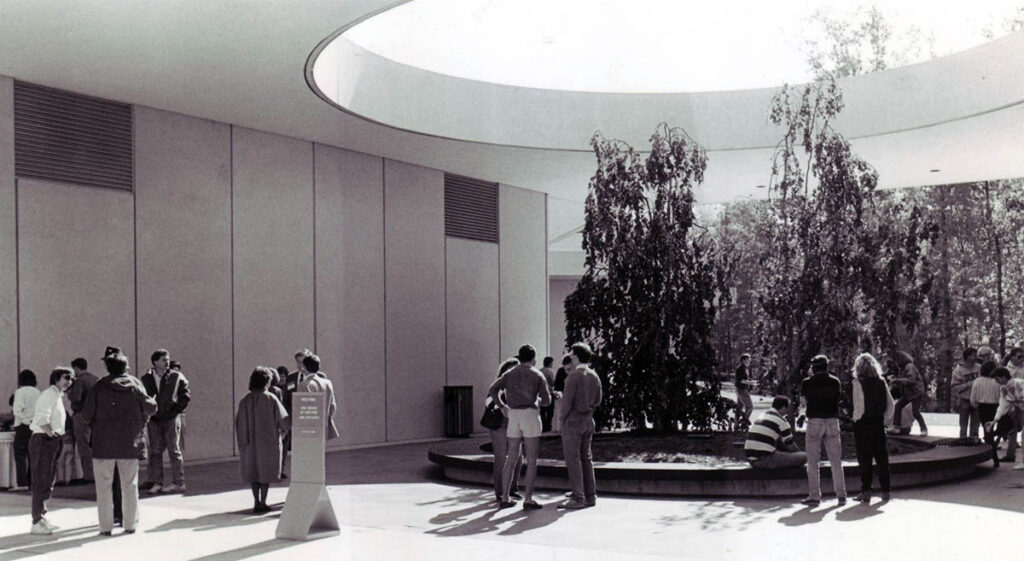|
|

GMAT Club Daily Prep
Thank you for using the timer - this advanced tool can estimate your performance and suggest more practice questions. We have subscribed you to Daily Prep Questions via email.
Customized
for You
Track
Your Progress
Practice
Pays
Not interested in getting valuable practice questions and articles delivered to your email? No problem, unsubscribe here.
Kudos
Bookmarks
| FROM Fuqua Student Blogs: Being an MBA Dad is the Best Way to Experience Fuqua |
|
Looking back at my past two years, the reason I was always chased by time was mostly because I was still unsure of what I was looking for. Not the bigger picture things like being able to spend more time with family or being a useful member of society, but rather on a somewhat tactical level, the “whats,” “wheres,” and “hows” of life. These were the questions I was forced to ask myself, but in a hyper-distracted state of mind because of all the classes, recruiting events, and interesting classmates I desperately wanted to get to know better. Not to mention the time spent on thinking how my expectations coming to school had been so different. Wasn’t an MBA all about having a good time learning how to ’network‘ over golf and improve our ’leadership skills‘ in exotic places during spring break? In addition to all that, I had uprooted my family, put a hold on my wife’s career, and dragged them here with me into a situation where time was already scarce as it is. Doing all of the above while trying to figure out how to schedule drop-offs and pickups for our child, how to help my wife settle into this new environment and enjoy this phase of our lives, and obviously prioritizing what would be best for our family as a consideration during recruiting were definitely added challenges. Watching my single care-free (exaggerating for production value—obviously nobody was carefree) classmates plan weekends together and have nothing else to worry about besides getting an MBA and landing a job, at times I felt that I was very late to the game. That I should have realized sooner that I would end up here at some point, that perhaps if I had come at an earlier phase in my life things would have been so much easier. Misery loves company. Speaking to other classmates who were also parents, we would often complain about not being able to go out at night with the rest of our friends, worrying over how our partners were doing while we were at school. Coming to school we had been completely ignorant of just how hectic things would be and had actually hoped this would be an opportunity to spend more time with our children. How ironic? At the same time, these conversations often made us realize how the hardships were actually helping us build a stronger foundation as a family. Many of the conversations I was having with my wife were topics we were newly exploring together—how we need to learn to express ourselves to one another better, what line of work we each want to be in but also what kind of lifestyle we want to lead, geographically, where we want to be after school. All topics that somehow, we had failed to go deeper into before coming to Fuqua. In retrospect, it was definitely a different experience. Instead of going to a different continent and meeting new people as most of my classmates did, we traveled to nearby beaches or went camping with other families. We shared tips on family-friendly events happening in Durham on the weekends, discussed how the school system in NC was different from other states and which strawberry farm had the least visitors on weekends. Our children got closer with each other on playdates, and after moving to different places after graduation, we still Facetime with the kids just because they miss each other. If anything, all the second thoughts about being an MBA dad that I had at the beginning of school were long gone—silly thoughts that had looked at only one side of the meadow. Now my family is as attached to Duke and Fuqua as I am, and Durham has become a place of many, many good memories that we wouldn’t trade for the world. And most importantly, both my wife and I came out of this experience closer than ever before, ready to take on whatever challenges lie ahead of us. Many of the soul-searching activities that I partook in at school were around keywords. What are some keywords you would use to describe yourself? Mine have, and always will be, first and foremost, husband and father. Now I can add Fuquan to that list. Everything else is mayonnaise. The post Being an MBA Dad is the Best Way to Experience Fuqua appeared first on Duke Daytime MBA Student Blog. |
This Blog post was imported into the forum automatically. We hope you found it helpful. Please use the Kudos button if you did, or please PM/DM me if you found it disruptive and I will take care of it.
-BB
Kudos
Bookmarks
| FROM Fuqua Student Blogs: How Our MBAs Found Meaningful Work (and Set Records!) in 2021 |
|
I’ve been privileged to serve on the careers team at Fuqua for more than 20 years and have seen many employment trends come and go during that time. No two years are ever the same when it comes to the types of jobs our students are seeking and the ways our team helps facilitate connections. Agility is essential to meet both student and recruiter needs in an ever-evolving business landscape. However, none of us could have predicted the many twists and challenges of the pandemic—which makes the record-breaking results from our Daytime MBA 2021 Employment Report all the more impressive. In a year as turbulent as 2021, the resilience and sustained excellence necessary for each Fuqua student to secure a desired position tells an important story about them, and about the strength of our faculty and curriculum, experiential learning, recruiting and career resources. In light of such complexity, their career outcomes are even more noteworthy. Here are some of this year’s key takeaways and my thoughts on what’s behind the shifts: The Class of 2021 set new Fuqua records in annual salary and how quickly they landed jobs. A one-year increase of five percentage points in job acceptances, from 91% in 2020 to 96% in 2021, is the highest in all my years at Fuqua. A significant driver is that more graduates accepted full-time offers from their intern employer, also up five percentage points from 2020, to 58% of the class. This trend benefits students who work hard to secure a desired internship, as well as employers, who invest in their internship program as a primary channel to full-time employment. International students experienced increased job success, up to 94% employed (when we collected the data three months after graduation) from 87% in 2020. We attribute this jump to the increased popularity of Fuqua’s Management Science and Technology Management (MSTeM) second major, which benefits both students and employers. MSTeM offers two additional years of U.S. work authorization to eligible students for a total of three years of work eligibility in the U.S. In addition to the potential visa benefit, MSTeM graduates are also highly sought after for the skills they bring in data analytics and in leading and managing technological transformation. Mean annual salary rose four percentage points over last year, from $135,935 to $141,109, also a new high. The consulting, technology, and financial services sectors saw salary gains of three to five percentage points each. MBAs went into many of the same fields as previous years, but into slightly different roles. Consulting, technology, and financial services account for 76% of acceptances in both 2021 and 2020, yet the types of roles are evolving with business needs. For example, with increased reliance on online shopping, the percentage of technology jobs in e-commerce jumped by 30% in just one year, from 40% of all tech in 2020 to 52% in 2021. We also saw an uptick in the operations function, as supply-chain bottlenecks impacted industries from retail to manufacturing, due to the pandemic. While still small at six percent of our graduates’ jobs, operations has tripled in the past two years, up from two percent in 2019. Graduates accepted jobs in 25 U.S. states and the District of Columbia. Although New York City continues to be the top single destination, the Western states have become a regional favorite, the largest this year at 28% of the class. Our newest alumni accepted positions in California, Washington, and Oregon, and Seattle and San Francisco were two of the top five metro locations. Approximately three percent of 2021 graduates accepted positions outside the United States in comparison to six percent in 2020. Destinations included Mexico City, Paris, Shanghai, Shenzhen, Seoul, and Toronto. Students Continue to Find Jobs Through our Career Management Center and Fuqua. Employers had to rethink their high-touch, largely in-person engagements when travel came to a halt and students weren’t on campus. We are grateful to our employer partners and students for their ingenuity, flexibility and patience in adapting to a virtual recruiting environment. Despite the changing landscape, Fuqua was committed to playing a central role in student employment. In 2020 – 2021, 80% of both graduates and interns attribute their accepted role to a school-facilitated opportunity or event, a number which has held steady in recent years. What shifted are the channels through which students and recruiters engaged. As campus interviews went online, they became more decentralized and accounted for less acceptances than in recent years. Conversely, Fuqua job postings increased in volume and importance. These trends are especially notable when comparing internship recruiting over the past two years – job postings increased by 216% from 12% of the 2021 intern class finding opportunities through listings to 26% for internships in 2022. Our community continues to show up for each other, even in difficult times. I remain grateful to our students, alumni, recruiters and our careers team for the commitment they exhibit, year after year, to make sure our newest graduates find the best possible career match. It is a gift to be at the intersection of the work of so many talented people. Our faculty are continuing to evolve our courses to make sure our graduates are as prepared as possible for the complexities they will face. In fact, the Class of 2021 was the first to experience our newest curriculum update and will take these new learnings with them out into their first jobs, and beyond. I look forward to learning how our Class of 2021 will positively impact their teams, companies, and communities. Now more than ever, we need business leaders who can instill common purpose to work toward a common goal. I’m proud to be part of a team making that happen—one graduate at a time. The post How Our MBAs Found Meaningful Work (and Set Records!) in 2021 appeared first on Duke Daytime MBA Student Blog. |
This Blog post was imported into the forum automatically. We hope you found it helpful. Please use the Kudos button if you did, or please PM/DM me if you found it disruptive and I will take care of it.
-BB
Kudos
Bookmarks
| FROM Fuqua Student Blogs: Fuqua’s Approach to Entrepreneurship Education |
|
Sometimes people ask me why entrepreneurship education should be taught within our MBA program if most students don’t aspire to launch a venture immediately post-graduation. The answer is twofold: first, cultivating an entrepreneurial mindset is an essential skill for today’s business leaders and, second, entrepreneurship may not be the first step out of an MBA. In fact, a recent survey of our graduates suggests it’s a pathway that many choose later in their careers. An Entrepreneurial Mindset Cultivating an entrepreneurial mindset and honing an entrepreneurial toolkit helps our students excel throughout their professional journey, even if they never desire to start their own venture. At the heart of entrepreneurship is the ability to identify a problem worth solving, develop a solution that meets and addresses that specific problem; test, in a resource-efficient way, whether or not the target customers will pay you for the solution; and marshal resources to support and scale the effort. At Fuqua, we define this as the entrepreneurial mindset. The entrepreneurship courses at Fuqua and the co-curricular programs offered through the Center for Entrepreneurship and Innovation (CEI) are designed to cultivate exactly these competencies, which can be applied to driving growth through innovation inside a larger organization or launching a startup venture. Fuqua believes in the importance of the entrepreneurial mindset so strongly that in 2020 we introduced the Entrepreneurial Mindset and Action course and required it of all Daytime MBA candidates. The course allows students to learn and apply their newly acquired entrepreneurial mindset through hands-on, in-class exercises and an innovation project that threads through the course. The course content is designed to ensure Fuqua is preparing graduates with skills that will make them stand out among their peers as innovators inside large firms as well as prepare them to be successful in future entrepreneurial endeavors. I love learning stories about how the course is already making a difference, like this blog post by Claudia Ceballos, Daytime MBA Class of 2022. Becoming an Entrepreneur Mid-Career While entrepreneurship may not be the first professional step out of an MBA degree, a recent survey of more than 1,300 of our Fuqua alumni found that 16% launch an entrepreneurial venture over the course of their career journey. Additionally, we learned that our alumni start their entrepreneurial journey on average 13 years after they complete their MBA. While this may seem surprising to some, this is in line with an extensive body of research that studies successful entrepreneurs. Despite the fact that the media celebrates the persona of the recent college graduate living out of their parent’s garage, research has found that the average age of successful entrepreneurs is actually 45 years old. At this stage of their careers, individuals have deep knowledge and expertise within an industry and know what problems are meaningful and need to be solved. This is embodied in Fuqua alum Wayne Cavanaugh, who experimented with entrepreneurship during his time at Fuqua, gained operating experience through working in private equity post-graduation, before founding his own venture, Ninja Nation, a franchise of obstacle course arenas targeting youth and adults. Given this, it’s clear why an entrepreneurship education curriculum that focuses on cultivating an entrepreneurial mindset is the perfect fit with an MBA. Fuqua’s approach to cultivating an entrepreneurial mindset among all our students, not only students well in the early stages of their career as they support the growth of their chosen employer, but it also equips them with the skills that they will need when they see the right opportunity later in their careers and are ready to take the entrepreneurial leap. The post Fuqua’s Approach to Entrepreneurship Education appeared first on Duke Daytime MBA Student Blog. |
This Blog post was imported into the forum automatically. We hope you found it helpful. Please use the Kudos button if you did, or please PM/DM me if you found it disruptive and I will take care of it.
-BB


